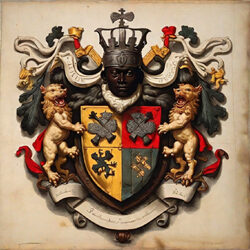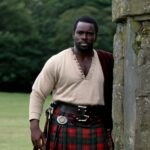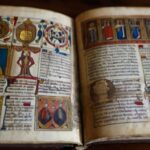
In the tapestry of history, certain threads often go unnoticed, hidden beneath the more dominant narratives. One such hidden thread is the presence of European men of color who played pivotal roles in shaping history, particularly during significant events like the American Revolution. In a recent video titled “European Men of Color That Fought in the American Revolution and Beyond,” the speaker delves deep into this obscured aspect of history, unraveling tales of bravery, resilience, and contributions that have long been overshadowed.
The video sheds light on a fascinating revelation: European men of color were not a rarity but a significant presence, even in military units like the 42nd Royal Highlanders and the Dungall Royal Garrison Artillery. These units, active in the late 1800s and early 1900s, included individuals with dark complexions from places like Scotland, Ireland, and other European countries. This challenges the common misconception that European names are exclusively associated with white individuals, highlighting the diversity within European communities.
One of the key takeaways from the video is the immense contribution of these men to the shaping of the United States. Thousands of European men of color immigrated to the American colonies, where they played crucial roles in building the nation. However, their contributions have been largely omitted from mainstream historical narratives, a testament to the systemic control over media and historical records by white supremacy.
The speaker also addresses the term “black Irish,” emphasizing that it refers to actual black Irish men and not just individuals with dark hair and eyes. This distinction is crucial in understanding and acknowledging the presence of black Europeans throughout history.
Moreover, there has been a noticeable absence of dark complexion Europeans in historical visual and written records such as paintings, books, and journals. This suggests a systematic omission of these narratives, likely influenced by the prevailing power structures.
In conclusion, our future articles will delve into the experiences of black Europeans in modern times. We anticipate this to be a fascinating exploration, revealing more obscured narratives and illuminating the enduring influence of European men of color.
In an interesting development, Glenn Beck, a former Fox News personality, and his work on the black founding fathers of America are mentioned. This highlights the importance of seeking out varied sources and viewpoints to uncover overlooked historical accounts.
Ultimately, this serves as a compelling call to appreciate the depth and diversity of history, encouraging us to explore further, challenge conventional stories, and recognize the rich mosaic of human experiences. We are invited on an enlightening expedition to discover and honor the stories that have yet to be recognized.





